
This past week, a major milestone happened in my life—I officially attended a conference as a piano teacher!
I was fortunate enough to be chosen as a recipient of a full-tuition waiver scholarship to attend the National Conference on Keyboard Pedagogy in Lombard, Illinois. Thanks to Dr. Richard Van Dyke from the Cincinnati Music Academy, and Dr. Vanessa Cornett-Murtada, Director of Keyboard Studies at the University of St. Thomas, for my scholarship! I sent them each a thank you letter but despite my sneaky badge peaking of everyone I walked past at the conference I didn’t get a chance to meet and thank them in person. I convinced my girlfriend Clare (she teaches piano also, in fact, the first time we met was in our piano pedagogy class—she came in late) to take advantage of the super affordable student rates still available to her and come along with me to the conference. However, because we didn’t trust ourselves to behave alone in a hotel room and didn’t want to pay for separate rooms—I dragged my mom to the conference too! It was an awesome four days surrounded by other piano teachers who are truly passionate about their profession, listening to workshops and master classes by some of the best piano teachers in the world. A couple days in my mom was already asking about coming back for the next conference because we all learned so much. While at the conference I had the opportunity to meet and chat briefly with a few of the speakers after their workshops:
Kevin Olson, he’s a prolific composer and arranger for FJH Music Company. He talked about the new series of method books that he and his wife wrote and other repertoire that’s out. I also really enjoyed learning about his family and his mission trip when he was in college.
Jane Magrath, she’s got so many volumes and works published with Alfred Publishing that I’m not even going to bother listing them. If you take piano lessons, chances are you’ve played from one of her curated volumes. I think her most indispensible publication for piano teachers is probably the Pianist's Guide to Standard Teaching and Performance Literature by Jane Magrath (this is an Amazon affiliate link, so I get like a quarter from Amazon if you purchase the book through it but I highly recommend this book for all piano teachers. Even if you don't use this link, you should find and buy it on Amazon).
On one of the last workshops I attended, I met Wendy Stevens! She writes a widely popular blog for piano teachers at www.composecreate.com with lots of essential reading for piano teachers, especially on healthy business practices. You can tell she’s giving invaluable information for teachers because the two workshops she gave were filled and a lot of people lined up afterwards to ask her more questions. I was the last person but she was still kind enough to chat with me despite running short on time to get lunch before catching her plane.
This conference really was a great experience that I feel all piano teachers should have periodically if not regularly. I don’t know how other teachers do it at the conference; going with two other people allowed us to split up and listen/record/take notes at different workshops happening at the same time. If you went by yourself…HOW DO YOU DECIDE ON ONLY ONE WORKSHOP TO GO TO AT A TIME?!
I don't think it's possible, which is why I hope that's a question I never have to answer! Were you at the conference too? How was your experience? Tell me about it in the comments! Don't forget to join us and like our studio's facebook page!
0 Comments
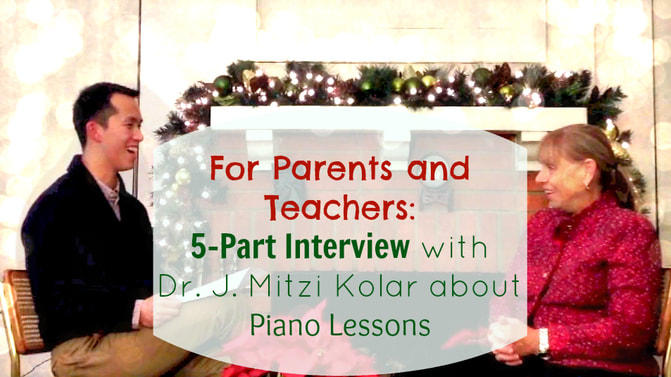
My interview with Dr Kolar turned into a five-part series of video posts because we talked for almost TWO hours; an incredible amount of invaluable information for parents and teachers. Well, I've compiled the links and topics talked about for all five parts here for easy access.
Click on the interviews for the video and a more detailed list of topics discussed.
This is Part 3 of my interview with Dr. J. Mitzi Kolar, some of the topics we covered in this segment is listed below. If you want better audio or just the audio, I uploaded a better sound quality audio file also. In Part 1 we talked about the development of the piano pedagogy field and Dr. Kolar gave some some inside look at the thought process that goes into writing a piano method book. In Part 2 we discussed pedagogical issues in teaching Bach, Beethoven, and Chopin's music. Again, sorry for the blurry video, I didn't realize the camera wasn't focused when we started the recording! So actually...parts 2-5 are all going to be like this. Here are some of the topics we covered in the third part of the interview:
Did you learn something from this interview? Have anything you want to add or more questions? Leave a comment! 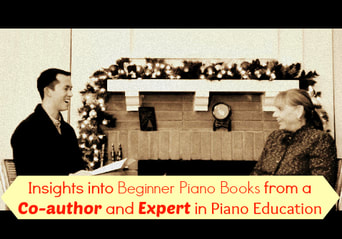
I had an awesome time interviewing Dr. Kolar on Wednesday night and was blown away with how much I learned through the opportunity to pick the brains of such an experienced piano pedagogue for TWO HOURS. Video of the interview is above. If you want better audio and only the audio, you can download or just listen to the audio file.
Here are some of the topics we covered in the first part of the interview:
Here's a link to the Celebrate Piano! Method website.
In the next segment of our interview, Dr. Kolar shares specific pedagogical issues with Bach, Beethoven, and Chopin's pieces and how to teach and practice each skill. This is a very informative segment with loads of information for piano teachers.
If you have any comments or questions please leave a message in the comments section! Also, if you found this information helpful then don't forget to join the FreshStart Friends List to get updates on the latest posts. I promise I won't send you spam! 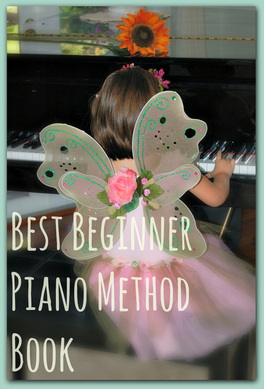 Picture by Flo's shots 4 me Picture by Flo's shots 4 me A method book is a curriculum for piano learning where the material is put in a specific order to facilitate learning. These are textbooks for piano learning--and there are many different options nowadays. So how do piano teachers decide which method book to use for beginners? Is it the price of the books? The illustrations and pictures? The number of books included in the method? The repertoire included? The teacher's familiarity with it because it's the method he used to learn piano as a kid? Or a combination of all of the above? While these could all play a part in selecting a method book, the knowledgeable piano teacher familiar with Bruner's The Process of Education looks for and knows that the most important aspect is how concepts are taught and sequenced. And why are concepts and its structure important? Because learning properly sequenced concepts makes the subject easier to understand, easier to remember, easier to transfer, and it narrows the gap between the basic 5-finger pattern and Beethoven's Waldstein Sonata. We won't go into the details here, but needless to say, this was about the time I realized a piano performance degree from a music conservatory along with a natural interaction with children did NOT automatically qualify me as a good piano teacher. There is so much more to educating your child than the ability to play piano and amicability. Now armed with this knowledge, which piano method book is the best? Honestly? None. There isn't a "best" piano method because students don't all fit into one "best" student mold. Different kids have different personalities, abilities, learning style, and at different developmental stages cognitively. Sorry to disappoint if you came here looking for a definitive "best" piano method book. The truth is it takes serious work and study into a method because the best method book is the one the teacher knows the best. And I'm not talking about a used-it-when-I-was-little way, not even a have-taught-it-for-the-last-decade way, but know it best in terms of knowing the method's strengths and weaknesses for different types of students and learners. A piano teacher should know how to best supplement the weaknesses with other materials and how to make adjustments for different students. I use the Celebrate Piano! Method books. I'm most familiar with this method book because of my pedagogy studies with Dr. Mitzi Kolar, one of the authors of the method book, and gained insight into the learning concepts and strategies in this method and the reason behind how concepts are taught and sequenced. And while no method book is perfect, this one comes close. "If you are a creative teacher, you can teach any type of student with any method." - Dr. J. Mitzi Kolar What are some of your experiences with piano method books? Have kids or students that have gone through a method? Talk about it in the comments section! Also, if you found this information helpful then don't forget to join the FreshStart Friends List to get updates on the latest posts. Obviously, as a piano teacher, I will not be spamming you. |
FreshStart Piano Studio in Irvine offers piano lessons for beginners between the ages of 4-adults and a fresh start for intermediate & advanced students. Enroll in piano lessons now!
Archives
December 2023
|
||||||||||||||||
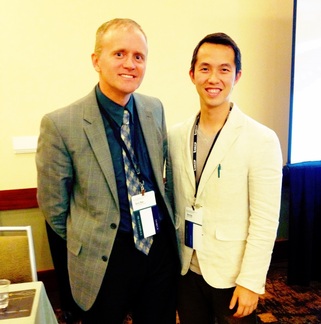
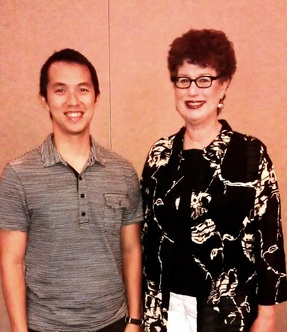
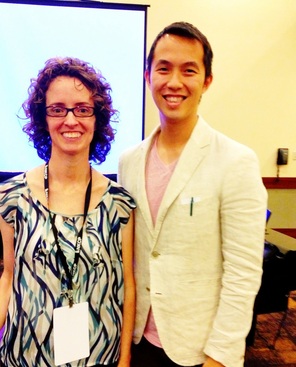
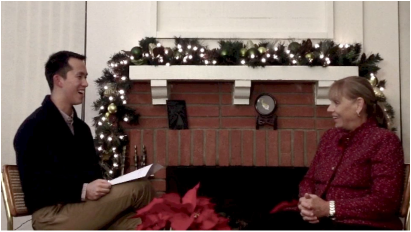
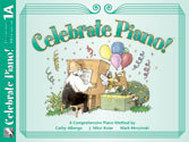
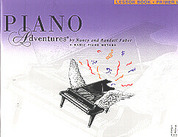
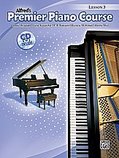
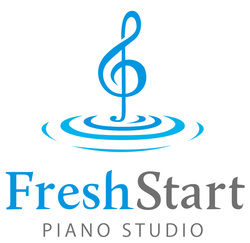
 RSS Feed
RSS Feed